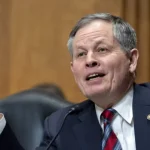
Here’s how desperate Disney is to milk whatever cash it can out of its own cows: The House of Mouse is now shopping shares of ESPN around to three of the sports leagues it covers.
According to CNBC, Disney’s sports division has been holding talks on “strategic partnerships” with Major League Baseball, the National Basketball Association and the National Football League to see if any of the three major leagues might be willing to come on as minority investors.
The NBA seemed to confirm that discussions have taken place: “We have a longstanding relationship with Disney and look forward to continuing the discussions around the future of our partnership,” the league said in a statement.
MLB and the NFL declined to comment.
Earlier this month, Disney CEO Bob Iger told CNBC that the company was looking to offload businesses that “may not be core to Disney,” including traditional TV businesses.
Trending:
Lo and behold, sports programming definitely falls under that aegis. Disney currently owns 80 percent of the sports broadcasting giant and recently fired scads of on-air talent as part of its move to slash costs.
Today I join the many hard-working colleagues who have been laid off.
Heartbreaking-but 27 years at ESPN was a good run.
So grateful for a 38 yr career!
Longevity for a woman in this business is something I’m especially proud of.
Next step- a project that gives back. ❤️ pic.twitter.com/URitozP0LQ
— Suzy Kolber (@SuzyKolber) June 30, 2023
“Our position in sports is very unique and we want to stay in that business,” Iger said in an interview on July 13.
Should Disney completely sell ESPN?
Yes: 0% (0 Votes)
No: 0% (0 Votes)
“We’re going to be open minded about looking for strategic partners that could either help us with distribution or content. I’m not going to get too detailed about it, but we’re bullish about sports as a media property.”
However, the media giant is looking to cut thousands of jobs and billions in spending due to weak performance from its core businesses of film and streaming revenues, along with its theme parks.
Granted, much of brand’s issues this could be attributed to Disney’s wokeness.
From needlessly sticking LGBT characters in kids’ movies (two of which, “Lightyear” and “Strange World”, were box office bombs that cost the company a quarter of a billion dollars) to a highly publicized fight with Florida Gov. Ron DeSantis, there’s nary an area in the media giant’s business which doesn’t pay some degree of fealty to the left.
That’s affecting the business model. Consider Disney’s theme parks, for instance, where visitors have been noticing a rarity this summer: short lines from a lack of attendance.
This includes ESPN — where you would think wokeness would be curtailed given the makeup of the sports-watching demographic. You’d be wrong; take fired host Max Kellerman, who once blamed “extremist right-wing agitators” for the fiery (but mostly peaceful) protests of 2020:
ESPN’s Max Kellerman says without any evidence that “extremist right-wing agitators” are responsible for the riots around America.
This is insanity. pic.twitter.com/woOvFtwIvr
— David Hookstead (@dhookstead) September 22, 2020
And this isn’t counting the number of prayer candles that have been burned at ESPN in honor of its patron martyr, St. Kaepernick of Nike.
Not that this is any better than the sports leagues themselves, mind you; you might be forgiven for not remembering how the NFL ended racism by putting “End Racism” at the back of the end zone in every stadium in the country. The MLB and NBA are hardly any better, if not worse.
However, at the end of the day, it’s one color that matters to both Disney and the three major sports leagues: green. And that’s where Disney might run into some problems offloading ESPN, as CNBC noted: “Superficially, it may make less sense for the NBA, NFL and MLB which sign lucrative media rights deals with many media partners that fuel team revenue and player salaries with a range of media companies.”
“Professional sports leagues could face conflicts of interest if they take a minority stake in ESPN,” the outlet added. “Owning a stake in ESPN may irritate Disney’s competitors, such as Comcast’s NBCUniversal, Fox, Amazon, Paramount Global and Apple, who help make the leagues billions of dollars by participating in bidding wars for sports rights. Taking an ownership stake in ESPN could give leagues the incentive to boost the value of that entity rather than striking deals with competitors.”
CNBC’s Alex Sherman continued, apparently with a straight face, to note that among the “hurdles for Disney” would include the possibility of bias: “ESPN also employs hundreds of journalists that cover the major sports leagues. Selling an ownership stake to the leagues could cloud the perception of objectivity for ESPN’s reporting apparatus.”
For those of us who haven’t been paying attention, that’s already been sold off.





